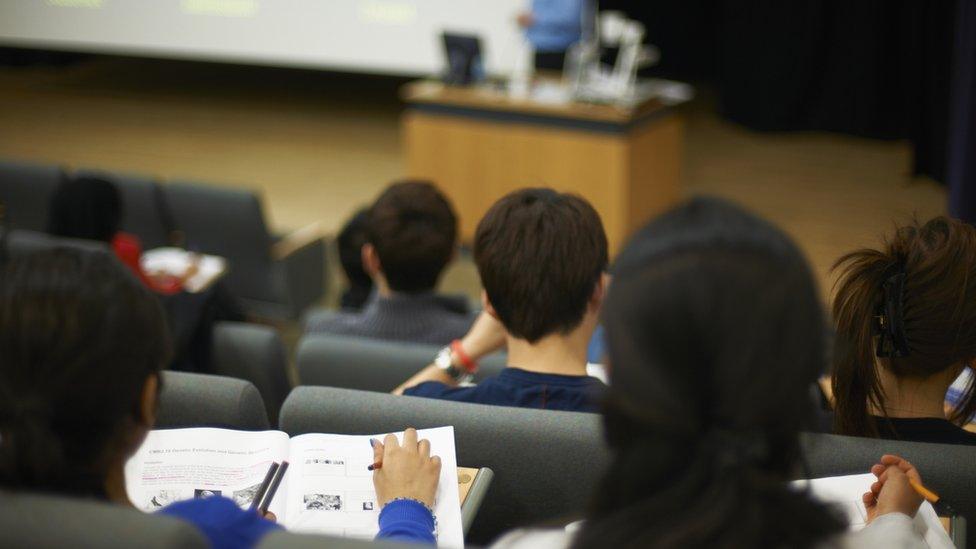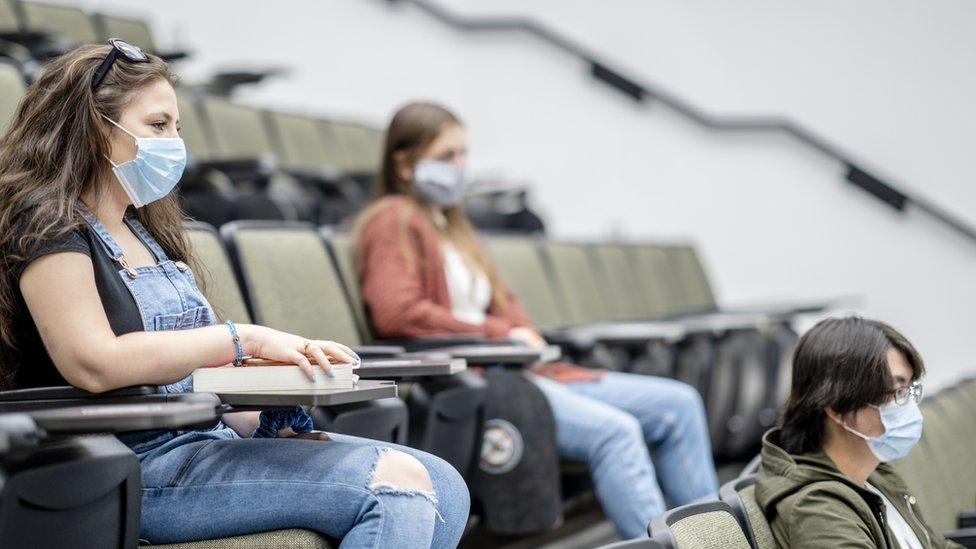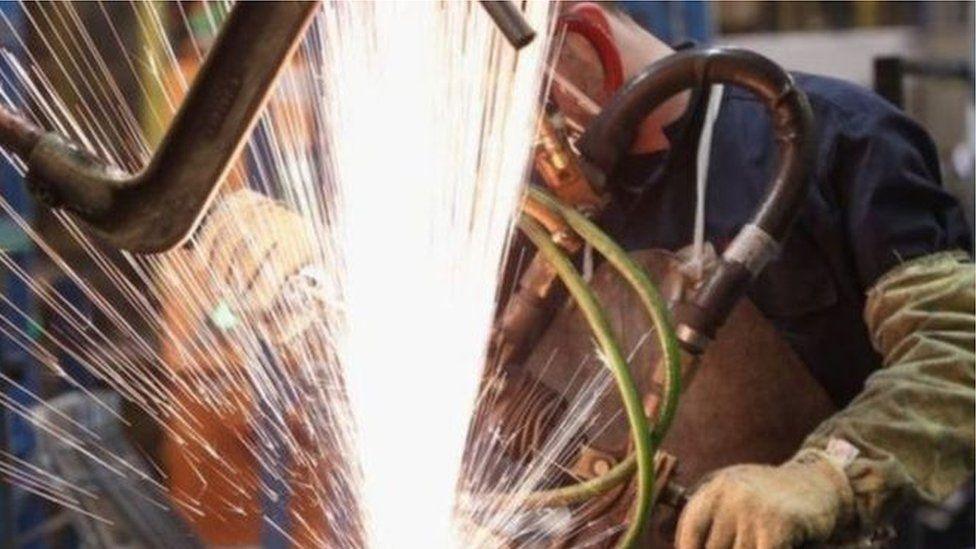NI education: Record number of school leavers apply to start university
- Published
- comments

18,430 students from Northern Ireland applied to go to university through UCAS by 30 June
A record proportion of 18-year-olds in Northern Ireland have applied to start university in 2022.
That is according to figures just published by the University and Colleges Admissions Service (UCAS).
Well over half (52.8%) of all 18-year-olds applied to UCAS by 30 June, up from 52.3% in 2021 and 48.2% in 2020.
According to UCAS, Northern Ireland has the highest rate of 18-year-olds applying to go to university of the four countries in the UK.
Across the UK as a whole, 44% of 18-year-olds have applied to start an undergraduate degree in 2022 - itself a record high.
UCAS is the central organisation through which applications are made for entry to full-time undergraduate courses at almost all UK universities.
In 2022, 12,070 18-year-olds in Northern Ireland have applied to go to university - up from 11,670 in 2021 and 10,720 in 2020.
Almost 60% of those applicants are women.
According to UCAS, almost two-thirds of 18-year-old women in Northern Ireland (63%) have applied to start undergraduate degrees in 2022.
That is a record rate and compares to just over four in ten (42%) of 18-year-old men applying.

A record rate of women in Northern Ireland have applied to university this year
The data released by UCAS shows, however, that while more students from disadvantaged backgrounds are applying to go to university, students from better-off backgrounds are more than twice as likely to apply.
But fewer students over the age of 18 or "mature students" - defined as over 21 when they start their course - from Northern Ireland have applied through UCAS in 2022.
Overall, 18,430 students from Northern Ireland applied to go to university through UCAS by 30 June, a fall from 19,390 in 2021.
The 30 June was the final deadline for applying for up to five universities or colleges simultaneously through UCAS, though applications can still be made after that date.
There have been concerns, though, that the increasing number of young people applying to university means they are not considering other options for education or training on leaving school.
Recent research commissioned by the Department for the Economy (DfE) suggested there was still a "societal stigma" stopping some young people taking vocational qualifications instead of a university degree.
It also found that school careers advice to pupils about taking vocational or technical qualifications was inconsistent.
There has been a significant fall in the number of school leavers entering FE colleges in Northern Ireland in recent years.
A recent Stormont strategy for 14-to-19 year olds in education called for more "parity of esteem" between academic and more technical or vocational qualifications for young people.
Most applicants to university will only have their place confirmed when they receive their A-level results on 18 August.
Related topics
- Published22 June 2022

- Published21 January 2022

- Published5 July 2022
